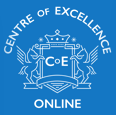What's Included
Eating Disorder Awareness Diploma Online Course
Course Syllabus
Introduction
- The basics
- Causes
- Types of eating disorders
-
- Anorexia Nervosa
- Bulimia Nervosa
- Binge eating disorder
- Eating disorders not otherwise specified (EDNOS)
- Treatment of eating disorders
- What to do if you know someone who is suffering from an eating disorder?
- Myths, Case Studies, Information for Coaches & Therapists, and an Overview
Module 1: The Basics
- What are eating disorders?
- Causes of Eating Disorders
- Busting the Myths
- Body Image and Body Shaming
- Reasons for Dissatisfaction With Body Appearance
- Males also Experience Eating Disorders
- Statistics
- Summary
- Assessments
-
- Multiple Choice Questions
- Short Answer Questions
Module 2: Possible Causes of Eating Disorders
- Genetic Factors
- Personality Traits
-
- Perfectionism
- Obsessive-compulsive traits
- Low self-esteem
- Dependency
- Mood swings
- Skill deficiencies - faulty or non-existent coping skills
- Biological Causes of Eating Disorders
-
- Abnormalities of the Hypothalamus
- Serotonin inconsistencies
- Cortisol production induced by stress
- Anterior pituitary gland
- Leptin resistance
- Oestrogen
- Testosterone
- Dopamine
- Social Causes of Eating Disorders
- Significant Life Events - Contribution To Eating Disorders
-
- Parental separation
- Physical, Sexual or Emotional Abuse
- Grief
- Domestic Abuse
- Summary
- Assessments
-
- Multiple Choice Questions
- Short Questions
Module 3: Anorexia Nervosa
- Signs, Symptoms, and Effects of Anorexia Nervosa
- Summary
- Assessments
-
- Multiple Choice Questions
- Short Questions
Module 4: Bulimia Nervosa
- Overview
- Bulimia Nervosa
- Symptoms of Bulimia
- Physical And Emotional Effects Of Bulimia
- Long-term effects of Bulimia
- Summary
- Assessments
-
- Multiple Choice Questions
- Short Questions
Module 5: Binge Eating Disorder
- Defining BED
- Reasons for the Development of the Disorder
- Binge Eating Disorder and Bulimia
-
- How a person suffers from BED
- Risks attached to BED
- Binge Eating Disorder and DSM
- Demographics
- People who are more likely to develop BED
- Treatment
- Social Stigma
- Signs, Symptoms, and Effects of Binge Eating Disorder
-
- Signs and Emotional Effects
- Symptoms and Physical Effects
- Other Effects
- Summary
- Assessments
-
- Multiple Choice Questions
- Short Questions
Module 6: Eating Disorder Not Otherwise Specified (EDNOS)
- What is 'EDNOS'?
- What are some of the causes and characteristics of EDNOS?
- What are the signs, symptoms, and effects of EDNOS?
- Physical Signs
-
- Psychological signs and symptoms
- Behavioural signs and symptoms
- Some of the effects that EDNOS has on the bodies of the patients are as follows
- Summary
- Assessments
-
- Multiple Choice Questions
- Short Questions
Module 7: Treatment of Eating Disorders
- What does it take to 'Return to Health'?
- Why is it important to return to your healthy self?
-
- Why should you consult a GP?
- What can you expect from your GP?
- What are the 'right questions' to ask your GP?
- Summary
- Assessments
-
- Multiple Choice Questions
- Short Questions
Module 8: What To Do If You Know Someone with an Eating Disorder?
- How to approach someone who has an eating disorder?
- Tips While Interacting With Someone Who Has An Eating Disorder
- How To Deal With People Who Have Eating Disorders In Your Education System
- How To Deal With People Who Have Eating Disorders
- Summary
- Assessments
-
- Multiple Choice Questions
- Short Questions
Module 9: Myths about Eating Orders
- Summary
- Assessments
-
- Multiple Choice Questions
- Short Questions
Module 10: Case Studies on Eating Disorders
- Case Study #1
- Case Study #2
- Case Study #3
- Case Study #4
- Summary
-
- Case Study #1
- Case Study #2
- Case Study #3
- Case Study #4
Module 11: Techniques for Overcoming Eating Disorders
- How to use CBT
- Hypnotherapy
-
- Sample Hypnotherapy Script
- NLP Coaching Techniques
-
- How to use NLP & Coaching Techniques to Overcome an Eating Disorder
- EFT
-
- Sample EFT Phrases for Tapping
- Nutrition Therapy
-
- Steps for Creating Change
- Assessments
-
- Multiple Choice Questions
- Short Questions
- Course Overview
Description
Who Would Benefit from the Course?
The Eating Disorder Awareness Diploma Course is aimed at those who are, or think they may be, suffering with an eating disorder and would like to get a better understanding of the condition, including information on the specific types of conditions, why and how they materialise, how to get treatment and what treatment entails, and uncover techniques to aid recovery.
The course would be particularly beneficial to those who are considering a career in helping those with eating disorders and anyone who has a friend or family member in need of help. Similarly, therapists and counsellors with clients who are suffering from eating disorders will gain a better understanding of the complex issues surrounding the condition.
As an awareness course, this diploma can also be studied purely for education benefits, enhancing your knowledge of something that afflicts people in ways and for reasons you may have not known.
What You Will Learn
- The Basics
- Possible Causes of Eating Disorders
- Anorexia Nervosa
- Bulimia Nervosa
- Binge Eating Disorder
- Eating Disorder Not Otherwise Specified (EDNOS)
- Treatment of Eating Disorders
- What To Do If You Know Someone with an Eating Disorder
- Myths about Eating Orders
- Case Studies on Eating Disorders
- Techniques for Overcoming Eating Disorders
Acting as an introduction to eating disorders, the 1st module of the Eating Disorder Awareness Diploma Course provides students with complete insight into what eating disorders are.
The focus is on the concept of body shaming, body image, and how a negative body image can lead to eating disorders. It covers the myths and facts surrounding the topic and provide you the truth behind these myths. The module explains how an eating disorder is not just a “women’s disease” and can affect both men and women alike. Also, a brief list of the reasons why eating disorders occur is given, along with statistics of the extent of eating disorders in the UK.
The 2nd module covers the causes of eating disorders listed below in detail, giving students a greater understanding of the ‘whys’ and ‘hows’ that an eating disorder may present itself. The module also stresses that these factors rarely occur in isolation, with sufferers usually being afflicted with 2 of more of these contributors:
- Genetic reasons
- Personality traits
- Biological factors
- Social factors
- Significant life events
Each of modules 3, 4, 5, 6 & 7 of the Eating Disorder Awareness Diploma Course cover, in depth, each type of eating disorder, including what it is and its signs and symptoms. The study of each of these eating disorders will endow students with a clear and explicit understanding of the differences between each type:
- Anorexia Nervosa
- Bulimia Nervosa
- Binge Eating Disorder
- Eating Disorder Not Otherwise Specified (EDNOS)
With students understanding why and how eating disorders present themselves and what each type is, the course moves onto module 8, which discusses treatment. Here methods and tips on how to counter the illnesses are listed and guidelines are provided on how to deal with a professional, in case you decide to seek help from a general practitioner.
Eating disorders manifest subtly and are not easy to spot, most of the time the person suffering is unable to identify an eating disorder themselves. Module 9 of the Eating Disorder Awareness Diploma Course serves as a guideline as to what actions to take in case you know a person who may be afflicted. It provides information on how to spot a person who is suffering and how you can help them.
As with mental health problems, eating disorders are massively misunderstood by society, which in turns creates myths and misconceptions that make it harder to tackle the problem, and the seriousness of having the condition and trying to deal with it can be seriously undermined. Module 10 combats these misconceptions by first stating each falsehood and then dispelling it.
To solidify understanding of the different types of eating disorders, how they affect the lives of sufferers and how people can recover, the 11th module of the Eating Disorder Awareness Diploma Course provides 4 case studies to look though, detailing the experiences of those who have lived with and recovered from an eating disorder.
Aimed at coaches, therapists, or individuals who want to train in modalities for assisting individuals to overcome eating disorders, module 11 provides a comprehensive guide of techniques and how to use those techniques to facilitate change.
The course concludes with an extensive summary, which covers the main points given in all of the proceeding modules.
Frequently Asked Questions
The Eating Disorder Awareness Diploma Course will take you up to 150 hours to complete working from home. There is no time limit for completing this course, it can be studied in your own time at your own pace. The course comes with a course assessment in the form of quizzes, written questions and short essays, once you have completed your course assessment please email or post it back to us for marking, you will then receive your feedback and certificates.
This course is certified by the IANLPC (International Association of NLP & Coaching) and the IAHT (International Alliance of Holistic Therapists), both of which are internationally recognised organisations. The IAHT certify personal development, health, fitness and nutrition courses. The IANLPC is a global support network for NLP Professionals and coaches, including the fields of Life Coaching, Hypnotherapy Business Coaching, Leadership, Nutritional, CBT, Personal Development and Holistic Therapy.
Terms & Conditions
Note: To get this deal for €19 a coupon has to be purchased from here. Without a coupon Centre of Excellence Online will charge the normal price of €147





